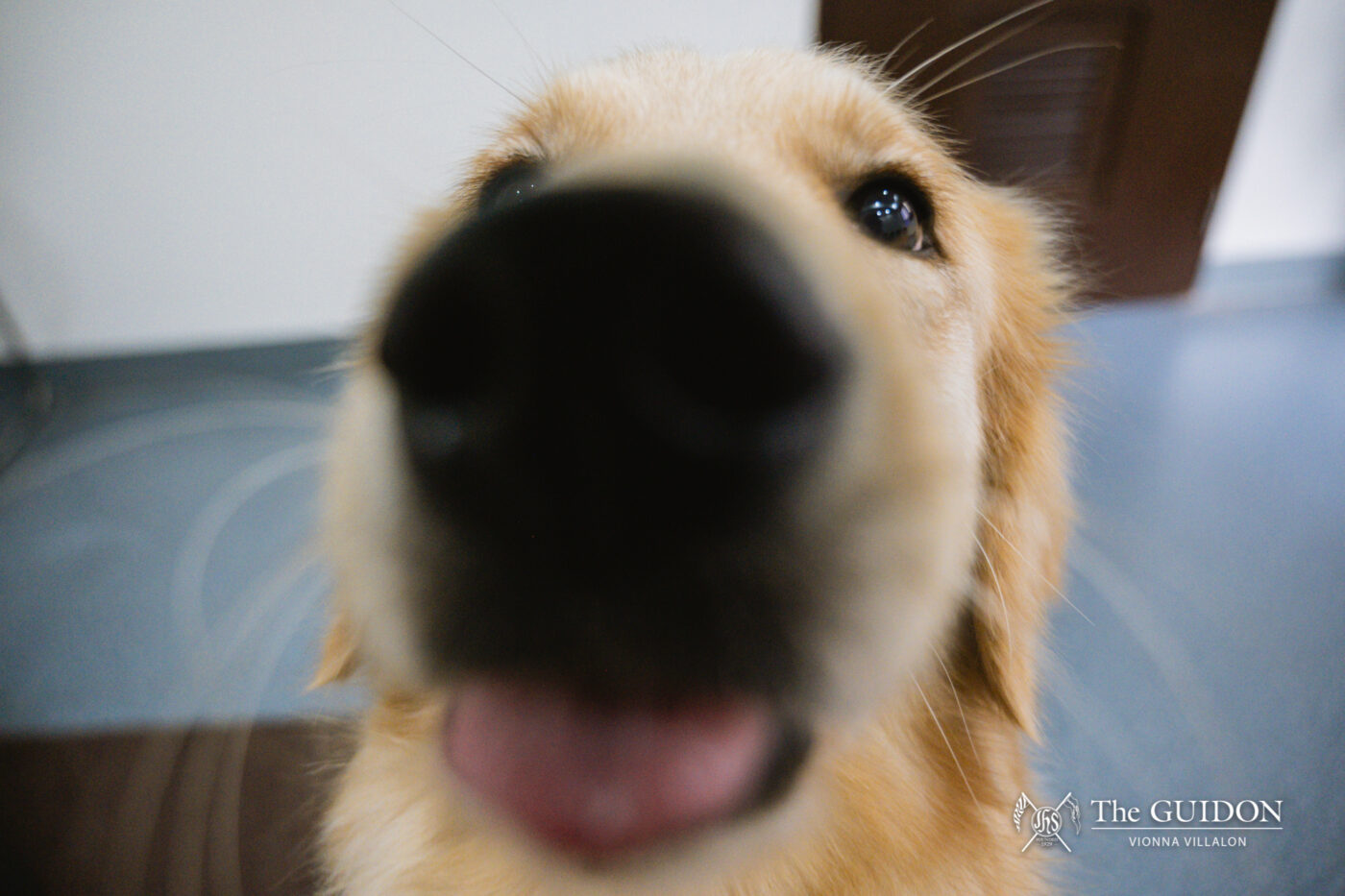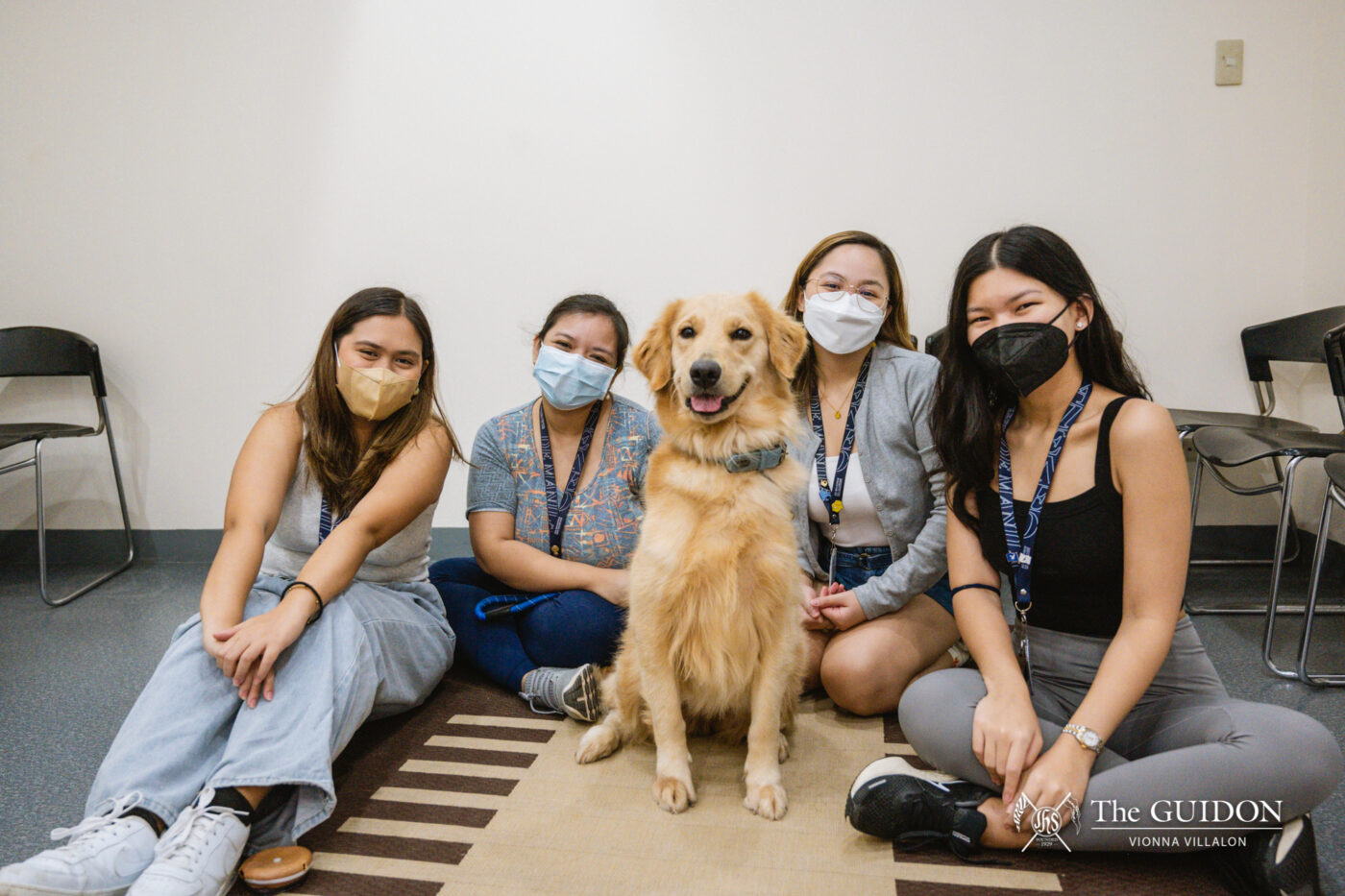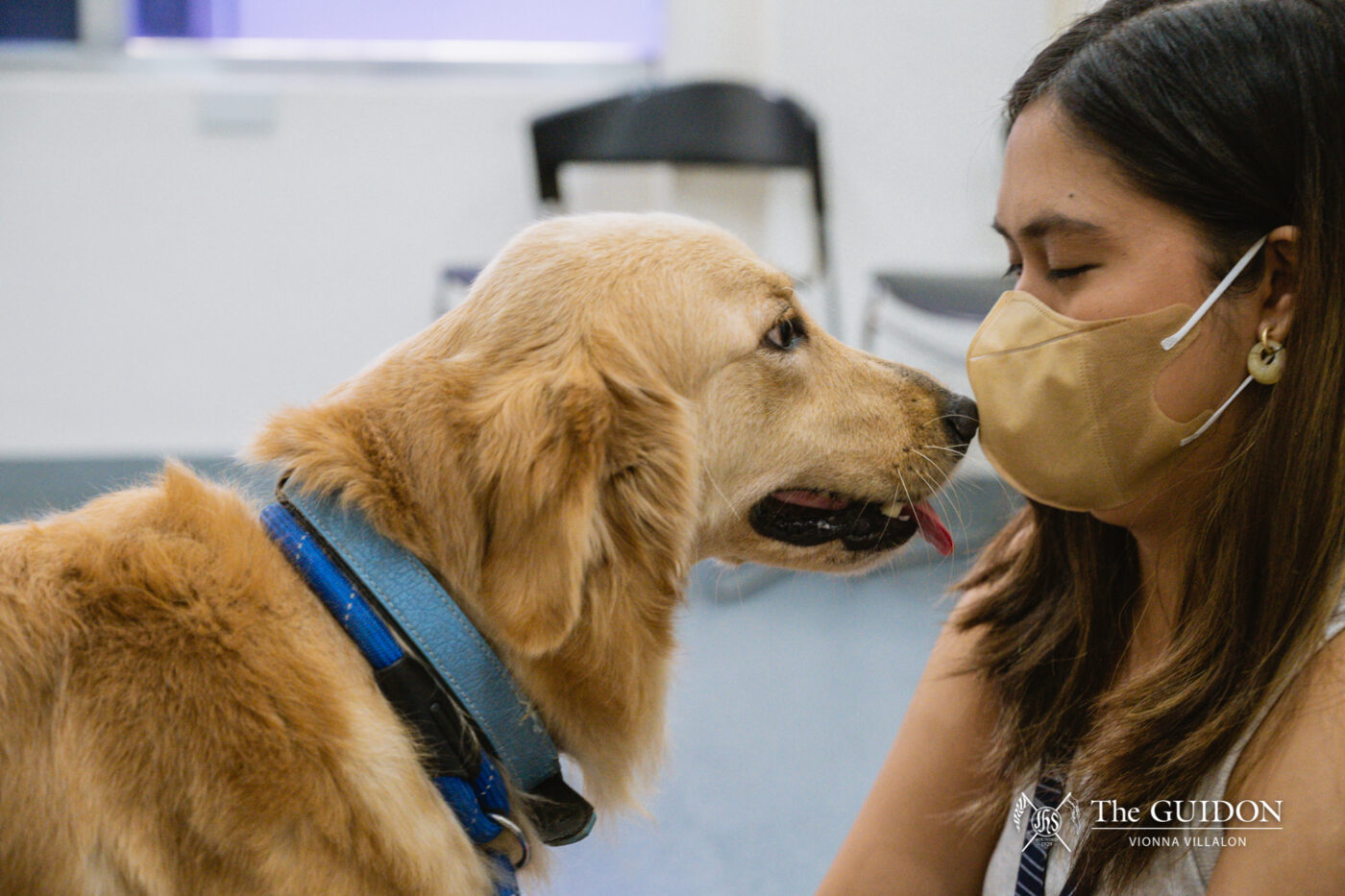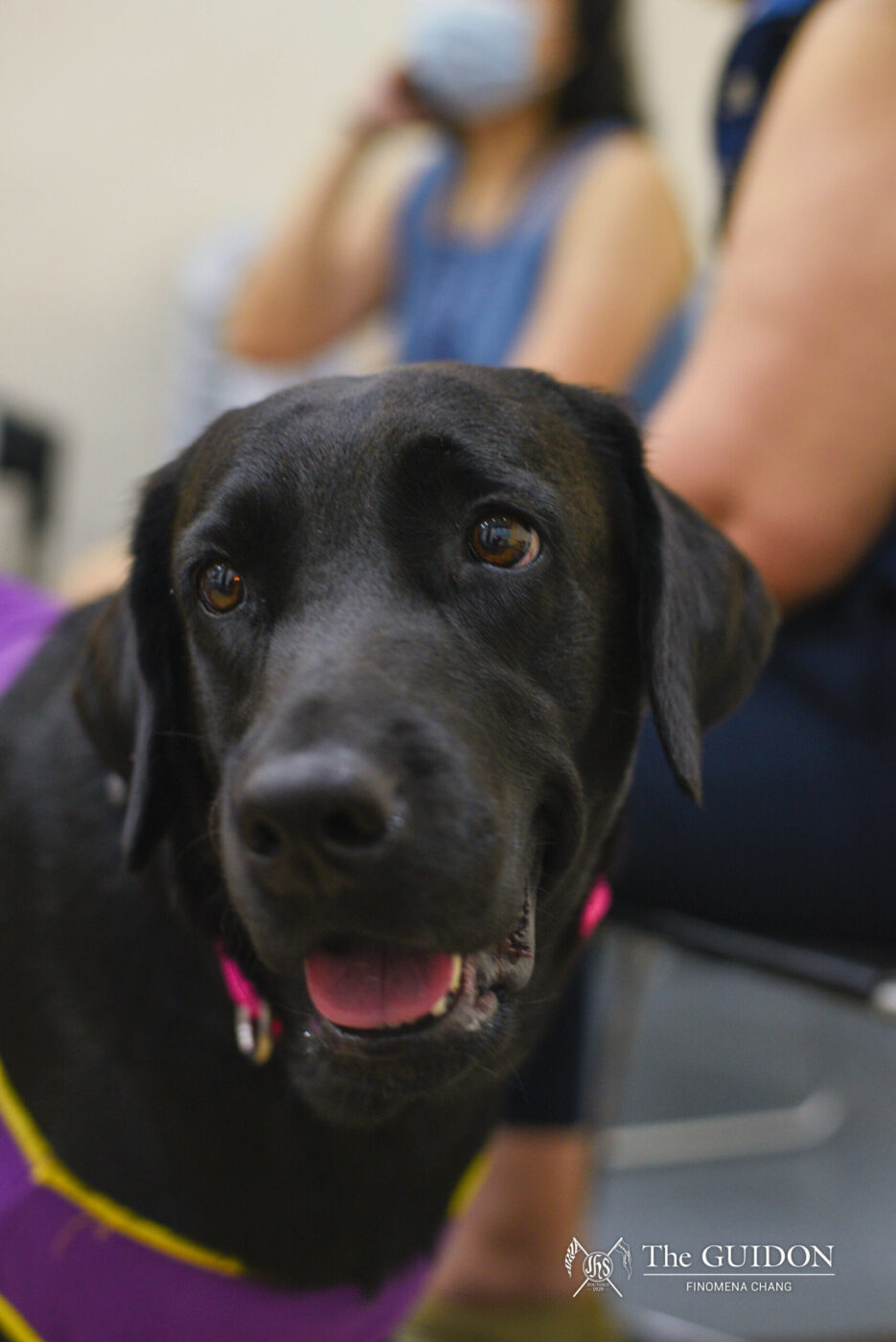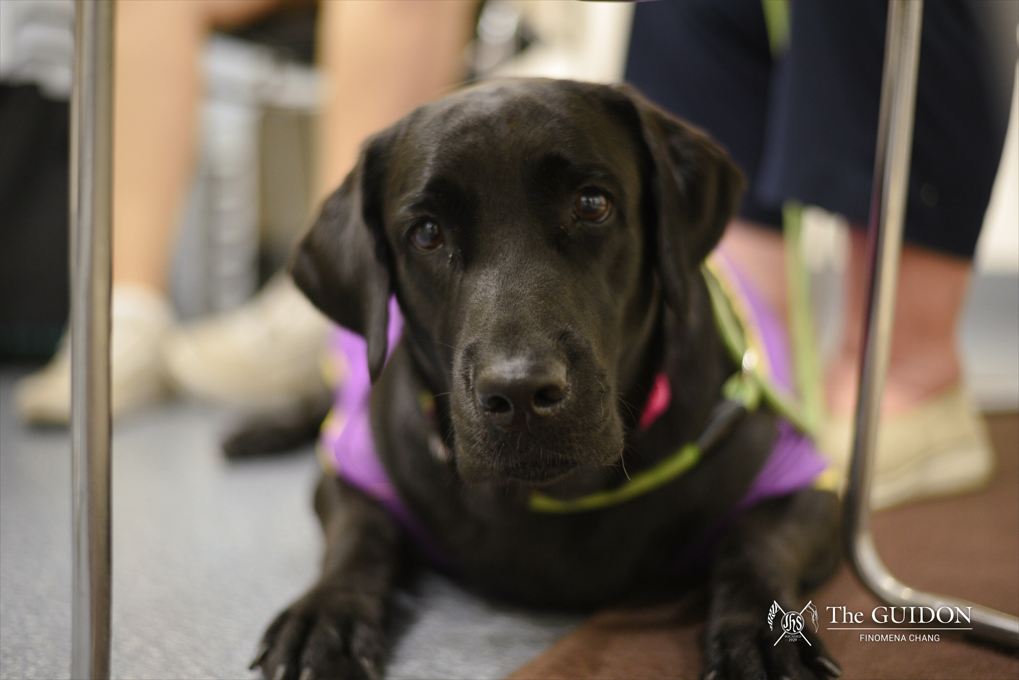Trigger warning: This article contains mentions of suicide, self-harm, and other mental health issues.
AS MENTAL health concerns take their toll on students returning to onsite classes, the Loyola Schools Office of Guidance and Counseling (LSOGC) resumed various onsite mental health interventions: the Animal-Assisted Activity (AAA) program, Blue Snooze, and the 24/7 crisis line.
LSOGC Director Gary Faustino warned that amid the shift to in-person classes, the student body has recorded a significant uptick in mental health concerns or instances when students report being on the verge of harming themselves.
In particular, 15 mental health cases were reported in the first two weeks of Intersession earlier this year. This is comparatively higher than in recent years, such as in 2016 when only one or two cases were recorded during the first weeks of classes.
Healing “paw-er”
To monitor the students’ mental health more closely, the LSOGC has spearheaded a battery of initiatives such as the AAA. Through this particular program, students can interact with any of the three trained therapy dogs or “thera-pets” of the LSOGC. Students play with the dogs and even witness them perform tricks.
The LSOGC holds two sessions with five slots per day from Monday to Friday, from 10 AM until 4 PM. Students may avail of the program by signing up for a schedule online or directly inquiring at the LSOGC office located at the Social Sciences building.
AAA, which the LSOGC began in 2016, was patterned after the therapy dog program for prisoners and PWDs in North America. Through research on this program, Faustino found that such therapy dogs are able to calm people down and promote one’s mental health.
Ever since the LSOGC launched the program in the LS, the canine essential workers have only risen in popularity. Faustino noted that the slots for October have officially run out. However, the LSOGC will open 30 November slots which students may sign up for in the last week of October.
Participating in the AAA’s pre-launch in Intersession, Jacky Lyn Mendoza (2 AB PSY) narrated that she and her fellow students gathered in a small room to play with the LSOGC dogs.
“I think that we, as humans, are so distracted by the idea of what’s important that we forget to enjoy the simple things like being with a dog,” Mendoza said.
According to Faustino, the LSOGC plans to involve other animals in the program in the future. They initially thought of bringing horses to campus, although the idea was deemed impractical due to the insufficient space on University grounds.
Snooze the day
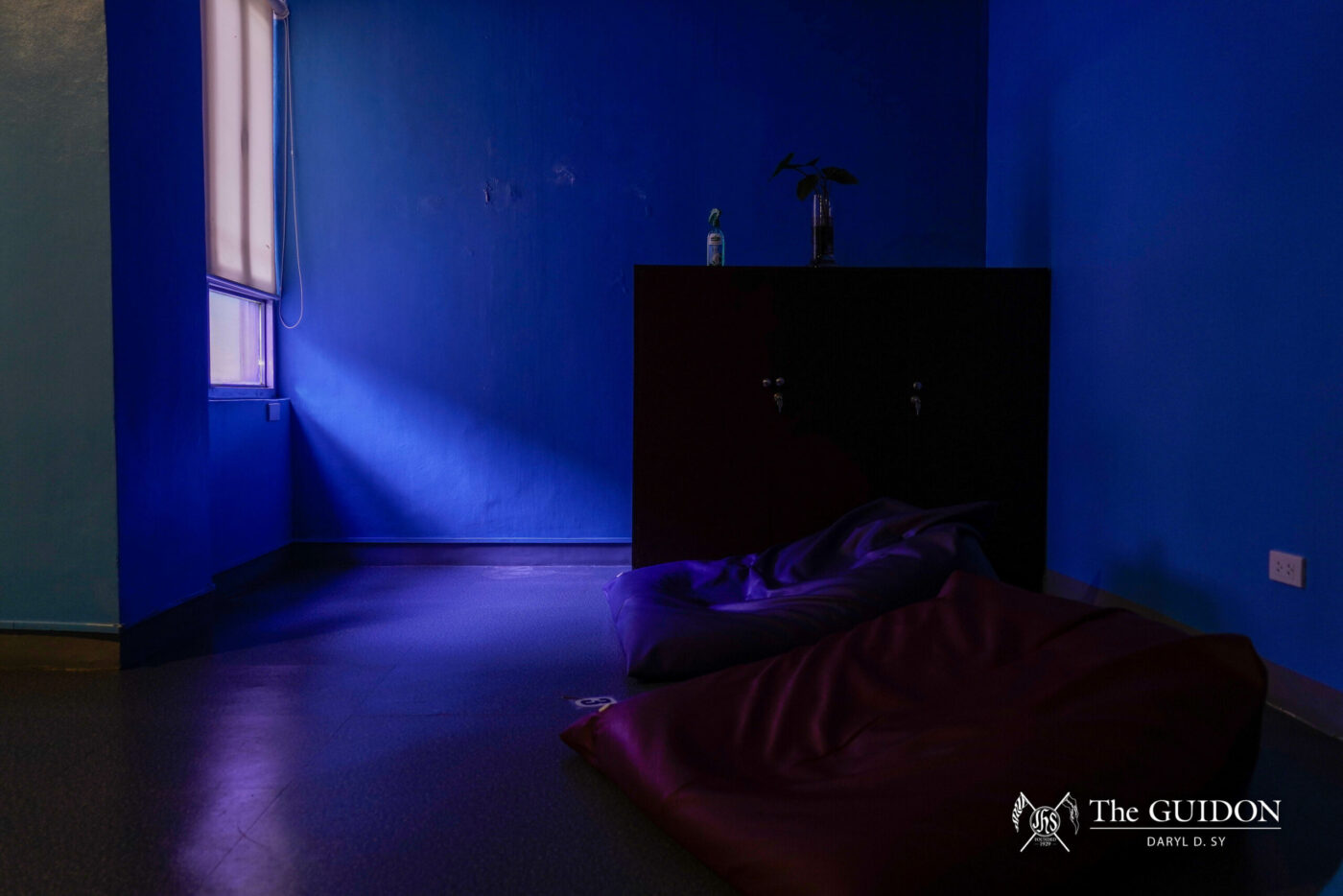
Aside from AAA, the LSOGC also offers Blue Snooze, a program that allows students to take a 30-minute nap in Social Sciences building Room 266 from Monday to Friday, 10 AM until 4 PM.
Since its launch this AY 2022–2023, Faustino noted that Blue Snooze has only become more popular among students, with the program often reaching its maximum capacity of six people.
(https://www.facebook.com/TheGUIDON/photos/a.123251847713976/5469820276390413/)
Dheyna Sabillo (1 AB DipIR), hearing the news of Blue Snooze, was able to avail a slot in the program. Sabillo believes she was able to rest well and safe, commending the good ventilation in Room 266. However, she noted that the number of bean bags used to sleep on was limited.
Despite restrictions that could hinder the program’s expansion, Sabillo trusts that she is being taken care of with this initiative. “I [still] think [the] Ateneo shows that they are competent when it comes to caring for their students talaga—as in, inaalagaan talaga,” Sabillo said.
For a better tomorrow
While other mental health interventions have been “subdued” amid the LSOGC’s understaffing issues, the office maintains counseling sessions alongside AAA and Blue Snooze. “[Students] have been coming [to our programs], so that’s a good thing. It’s good also on our part because it means there’s trust in our system,” Faustino said.
Taken together, the LSOGC hopes that these initiatives effectively help them track their students’ mental health.
“I think it’s better that we know what we’re dealing with rather than not knowing and they don’t come and they don’t tell us. We’d rather face it squarely than be surprised because if you don’t know, it will develop and it will spiral down,” Faustino explained.On November 7, the LSOGC will commence its annual Wellness Week featuring self-care programs such as online webinars and onsite activities. Down the line, the LSOGC also aims to expand its current slate of services and branch out to the Psychological Association of the Philippines to improve the office’s ability to serve the University community.

